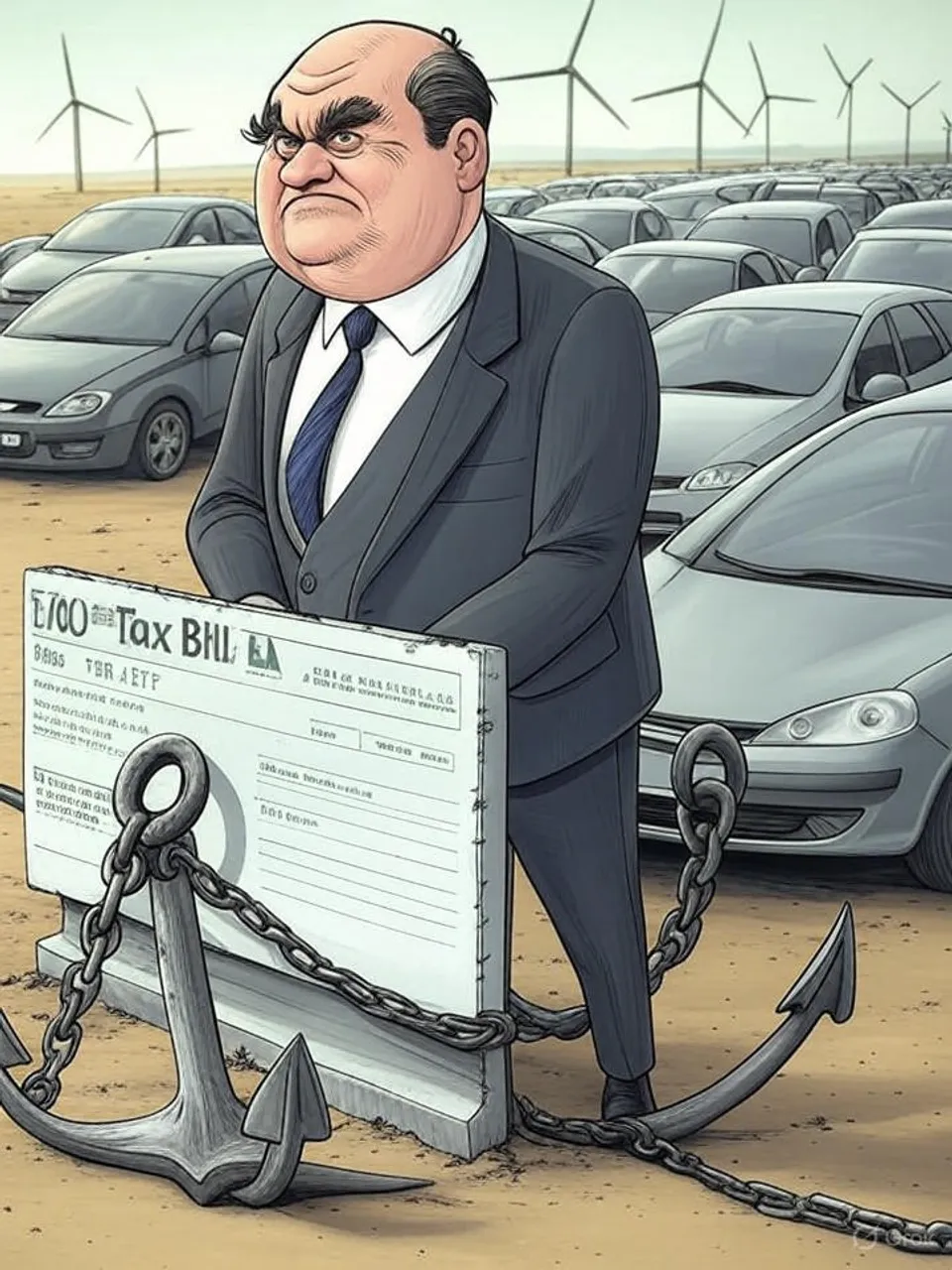Tax Levy Hits EV Bays as Green Push Stalls

£100 Million Burden Threatens 64,000 Charging Sites
New business rates on EV charging bays expose policy contradictions that burden operators and drivers, undermining the UK's net zero transition amid slower car sales.
Commentary Based On
The Guardian
UK charging industry could face £100m bill under business rate changes
The UK’s electric vehicle infrastructure, built to support over a million battery cars, now confronts a £100 million tax levy on charging bays that were never meant to bear such costs.
ChargeUK calculates that 64,000 parking bays adjacent to public chargers will become liable for business rates starting April 2025. These spaces, previously exempt, fund local services but add an unexpected burden to operators already strained by slower EV sales growth. The Valuation Office Agency’s decision stems from a review that classifies bays as rateable due to exclusive operator occupation.
Public chargers numbered 86,000 by September’s end, an 18 percent rise from 73,000 the prior year. This expansion catered to rising EV numbers, yet the sector built ahead of demand in regions like the Midlands and north. Operators such as Osprey Charging now plan site closures and delayed investments outside London, where EV density is highest.
The 2022 Conservative exemption covered only charging equipment, leaving bays exposed. This oversight means the tax could backdate to April 2023, potentially doubling the first-year bill beyond £100 million. ChargeUK disputes the agency’s £25 million estimate as too low, citing undercounted bays and higher average rents.
Drivers face pass-through costs of up to £300 annually per user. Industry leaders like Vicky Read warn that business rates, combined with high electricity standing charges and VAT disparities, could collapse marginal sites. This erodes the affordability that underpins EV adoption.
Government policy promotes electric vehicles to meet legally binding carbon reduction targets. Yet imposing rates on essential infrastructure contradicts that push, as bays enable the very uptake needed for net zero goals. The Treasury holds the power to exempt the sector in its November 26 budget, but no commitment has emerged.
Such fiscal decisions recur across administrations. Labour and Conservative governments alike have layered taxes on emerging sectors without holistic support, from quantum tech fleeing abroad to stalled social housing builds. Here, short-term revenue from rates—projected at £100 million—trumps long-term gains in green industry.
The pattern exposes deeper institutional rigidity. The Valuation Office Agency cites statutory duty to rate properties, blind to broader policy aims. This siloed approach fragments economic strategy, where one arm enforces taxes while another chases emissions cuts.
Ordinary citizens bear the fallout. Higher charging costs deter EV switches, prolonging reliance on polluting fuels and inflating household expenses. Regional disparities widen, as rural and northern areas—already underserved—see infrastructure retreat first.
UK productivity lags peers partly because such burdens stifle investment in high-growth fields. Functional governance would align tax policy with strategic goals, exempting critical infrastructure outright as in other nations’ green transitions. Instead, operators divert funds from expansion to compliance.
This episode underscores how fiscal mechanisms, meant to sustain public services, now actively undermine them by hobbling the economy’s future. Britain’s green ambitions falter not from lack of intent, but from a tax system that penalizes progress. The result: a slower shift to low emissions, deeper regional divides, and an economy that extracts more than it builds.
Commentary based on UK charging industry could face £100m bill under business rate changes by Jasper Jolly on The Guardian.